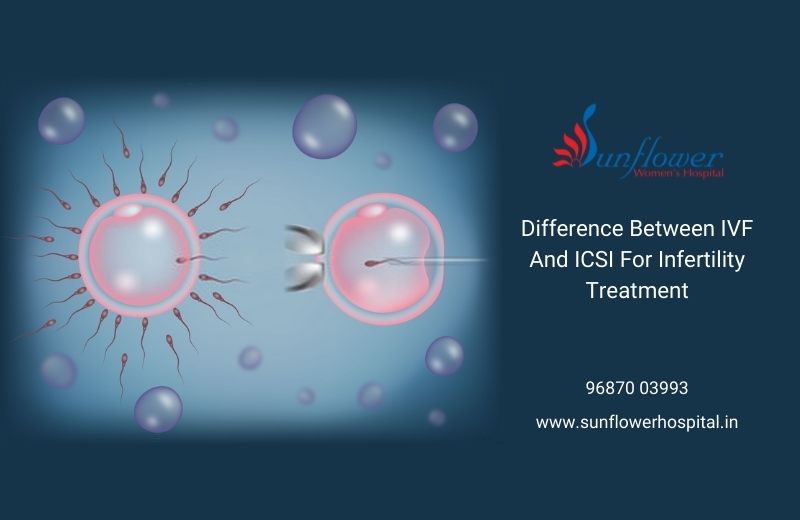Assisted Reproductive Technology (ART) has attracted the attention of infertility patients around the world. This popularity is mainly fueled by technological advances in the field of IVF. And yet, although most of us commonly refer to infertility treatment as IVF treatment, you also often find other treatments that are used during IVF consultation one of which is ICSI treatment.
Intra-cytoplasmic sperm injection or ICSI is also an infertility treatment similar to IVF but is only recommended for specific cases. And to understand why ICSI experts will tell you to prefer IVF, you first need to know how it differs from traditional IVF treatment.
Difference between IVF and ICSI treatment:
The only essential difference between IVF and ICSI is how the male sperms are used during the fertilization process. During the IVF process, the female eggs are recovered and prepared for fertilization in a controlled environment. Then, thousands of sperms obtained from the male partner are dispersed in each egg and placed in an incubator to fertilize and form embryos fertilization. Finally, most fertilized embryos are implanted in the uterus.
During the ICSI procedure, the female’s eggs are separate from each other and are made ready for fertilization. Here, male sperm is also isolated under a microscope. Now, ICSI specialists inject healthy sperm directly into the egg using advanced glass needle devices and store it for fertilization. The egg that develops in the incubator is then implanted in the uterus.
Original IVF and ICSI:
In vitro fertilization (IVF) was first performed in 1980 and since then it has helped many couple with infertility to have children. But doctors felt that IVF technology only works when the male sperm is healthy and adequate. In couples with male infertility factors, IVF treatment does not work as expected.
Therefore, in the early 1990s, the ICSI procedure was developed to deal with the male infertility factor, to provide the benefits of the IVF process. Since then, ICSI treatment has been significantly helpful in successful IVF treatment for couples with male infertility factors.
When ICSI is recommended
Since ICSI is clearly developed to deal with the male infertility factor, it is generally recommended for couples who have
- Less active sperm
- Significant decreased sperm count, or oligospermia
- Abnormal semen
- High levels of antibodies in their semen
- Selected for direct sperm retrieval from epididymis (PESA) or testicles (TESA)
Couples without any male infertility factors may also opt for ICSI treatment, but then its results will not be better than IVF treatment. Therefore, for the treatment of ICSI in Ahmedabad, it is necessary to first consult an ICSI expert. At Sunflower Hospital, our infertility specialist thoroughly examines every factor to suggest only the most beneficial options for each person. If you are not sure what is the cause of your infertility or prevents you from getting successful IVF treatment, then visit our Embryology and andrology Specialists to know about your best options for IVF treatment in Ahmedabad.


Leave a Comment